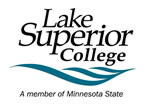Part 1: Purpose
To establish the process by which students provide massage therapy services as part of their academic program. All services must be integral to the instructional program.
Part 2: Massage Therapy Clinic
Massage therapy students provide a full range of massage therapy services to clients over the age of five (5). As a student clinic, it is the position of our program that medical massage cases are not a good fit for students that have not yet completed their training, and we therefore do not require medical referrals and do not accept health savings accounts or insurance claims.
Massage therapy clients are Lake Superior College (LSC) students, employees, and the general public.
Clients participate in a pre-massage intake interview, which includes an explanation of the service to be provided that day. The length of the massage service and the type of massage given are scheduled in advance and confirmed verbally on the day of the session during the intake interview.
Services are provided when the clinic is scheduled to be open to the public. Schedule varies throughout the semester. A published schedule will be available that identifies types of massages offered on which days. The schedule is available on the LSC website. Clients call to set up an appointment. Appointments are made on a first requested, first served basis. To support the learning experience of each student, there may be restrictions on the number of sessions that one person may receive.
Restrictions are determined by the faculty supervising the student clinic.
The Massage Therapy Clinic is advertised on the LSC website. The program and clinic are also advertised by student chair massages at LSC health fairs, appearances at local colleges, and in the community.
Part 3: Massage Therapy Clinic Procedures
Subpart A: Admissions
- All clients must fill out a health intake form, which is considered valid for one academic year. To receive treatment, clients must sign the “consent to treatment” on the end of their intake form.
- Clients have an initial interview with the massage therapy student to discuss personal information and health history, therapy goals, and answer any outstanding questions. The therapist explains the types of massage, proposes a treatment plan, and describes the massage process.
- Client must consent to the terms and conditions of utilizing the Massage Therapy Clinic by signing and dating a Client Bill of Rights, which is effective for one academic year.
- All massage therapy students will do a post massage interview with their clients, who will be asked to complete an evaluation of their massage.
- Appropriate client file record keeping is maintained by the massage therapy students and faculty, in accordance with HIPAA and industry standards.
Subpart B: Costs
- The massage clinic pricing shall be proposed annually by the massage therapy program director and/or dean and approved by the dean and the Massage Therapy Program Advisory Committee at the regularly scheduled meeting. Price changes from the previous year will go into effect the academic year following the approval of the change.
- Clients who arrive late or leave early are charged for the amount of treatment scheduled, not what was received due to their late arrival.
- Those who are either currently enrolled in the Massage Therapy Program of Lake Superior College, or are currently members of the MTP Advisory Committee, may receive massage services in the student clinic free of charge.
Subpart C: Payments and Billing
- Payments are due prior to treatment.
- Payment for massage services are made at the reception desk of the Massage Therapy Clinic.
- Credit card payments need to be made at the Student Payment Office (SPO) window. Clients are sent with an amount owed to the SPO window, obtain a receipt, and return to the Massage Therapy Clinic.
- If payment is required, but cannot be provided, the client shall not receive their scheduled session that day.
- Refunds for massage services shall only be issued if LSC is responsible for the cause of Refunds will only be given in the form of a voucher for a future massage appointment.
Subpart D: Cash Procedures
- Client payments are recorded on appointment schedule including amount and method of payment.
- Cash on hand
- Amount is requested from the Business Services Office at the start of the fall semester and recorded in the LSC accounting system.
- Cash on hand remains with the department throughout the academic year; total amount is returned after the last clinic in the spring semester.
- Cash is kept in the locked cash drawer of the reception area and is supervised by massage therapy The students assigned to the clinical assistant role that day take payments, record payment and appointment information, and direct the client to the business office when appropriate.
- Business Services Office staff conduct unscheduled audits of cash balance periodically, at least annually.
- Deposits
- The supervising massage therapy faculty prepares the deposit for each clinic and matches the total on the deposit form to the amount shown as paid on the appointment schedule.
- Appointment schedule must be submitted along with the deposit.
- Cash overages or shortages, if they occur, are recorded on the Deposit form.
- Deposit date on the deposit form is the date it is brought to the Business Services Office (not the clinic date/s).
- Supervising massage therapy faculty brings deposit to the Business Services Office, may contact security to deliver it, or may place the deposit in the Business Services Office drop box after hours.
- Deposits over $200 must be made the same day. Deposits less than $200 must be made within 3 business days, but every effort should be made to make deposits daily.
- Deposit is verified by Business Services Office staff and entered in the LSC accounting system.
- Checks are stamped in the Business Services Office.
- Deposits are credited to the appropriate account in the LSC accounting system.
Subpart E: Internal Mitigating Control
Ideally staff that does not have access to the cash drawer should prepare deposit, but this is not possible due to small staff. Mitigating controls are in place to verify deposits and cash on hand.
The internal mitigating control is conducted by the designated Business Services Office staff.
- At least once each semester, the Business Services Office staff conducts an audit of the cash on hand.
- Audits of deposits are conducted at least annually.
- Audit process is documented in the Business Services Office.
Part 4: Simulation Labs
Simulation labs are an educational activity wherein the massage therapy students complete a massage session following all clinical procedures on a practice client who has not paid money for the session. Simulation labs are determined by the massage therapy faculty. The faculty determine how the pool of practice clients are drawn. These labs are intended to primarily fulfill a learning experience and provide the students with practice of specific skills or procedures, with more supervision than clinics. Labs that are open to the general public will be published on the official clinic schedule and noted as such at the time of posting.
History
Date Implemented: June 10, 2015
Date Updated: March 2022
President’s Signature Date: September 22, 2022



